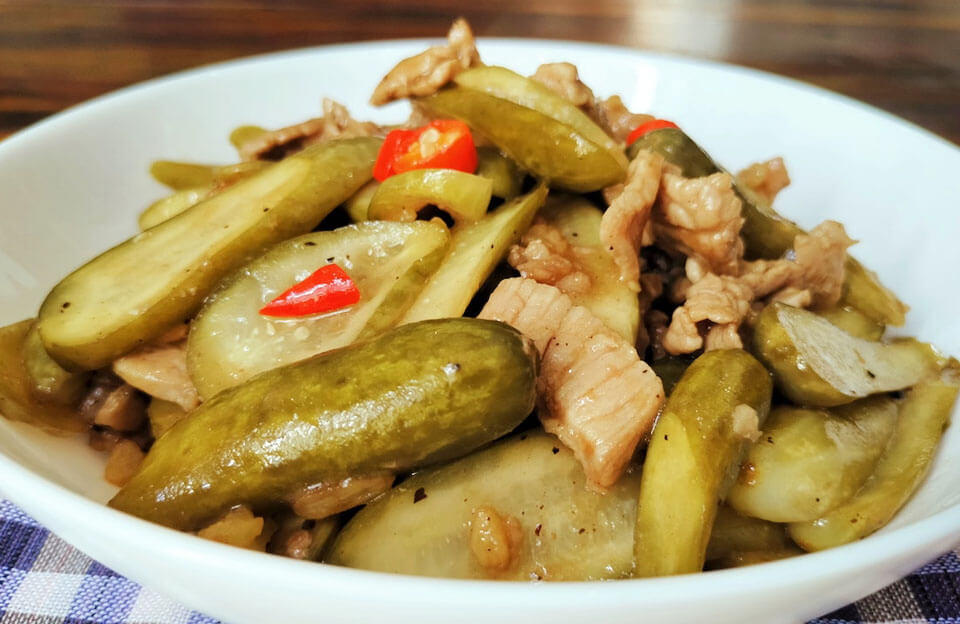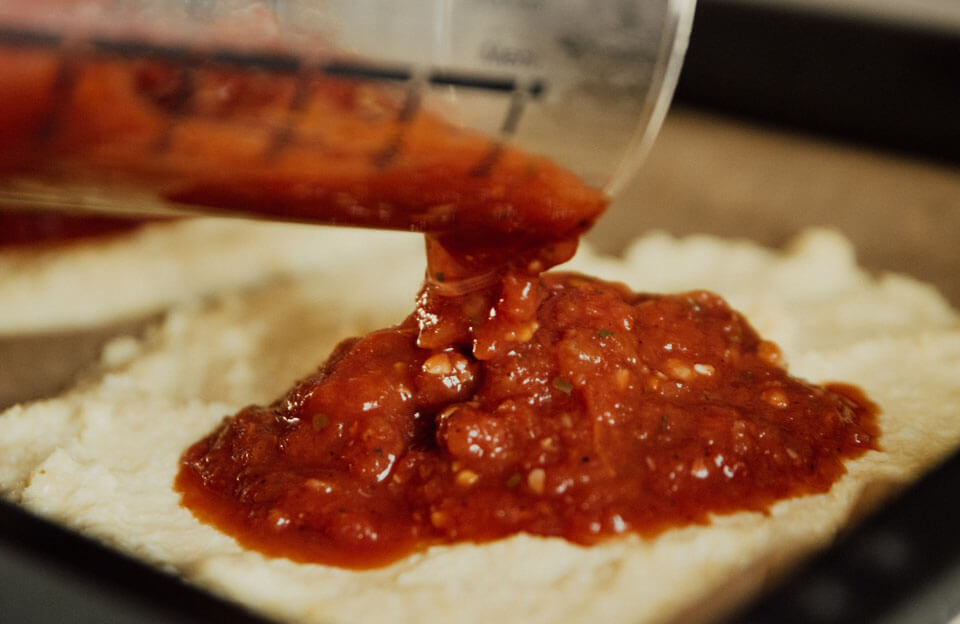Pickles, or cucumbers soaked in brine, are a staple of picnics. Many people think a sandwich or a hamburger isn’t complete without one. Some diabetics may think the same way and now wonder if it’s possible for them to continue to enjoy pickles.
They may have even heard about the potential benefits of pickle juice and wonder if pickles may have health benefits for them. Here’s a breakdown of the nutrition of the pickles and whether they can be eaten by diabetics.
Nutritional Value of Pickles
There are so many different types of pickles it’s hard to break down the nutritional value of pickles in general. They can be divided into two broad categories: sweet and savory. Sweet pickles are popular in some places, but most pickles currently bought are savory pickles.
So for this breakdown, there are two types of the most popular kind of savory pickles, dill pickles: store-bought and homemade.
| Nutrient | Amount |
| Calories | 0 cal |
| Protein | 1g |
| Fats | 0g |
| Total carbohydrate | 1g |
| Fiber | 0g |
| Sugars | 0g |
| Calcium | 0 mg |
| Iron | 0 mg |
| Sodium | 220 mg |
| Riboflavin | 0 mg |
| Thiamin | 0 mg |
| Niacin | 0 mg |
| Vitamin C | 0 mg |
| Vitamin A | 0 IU |
| Saturated fat | 0 mg |
| Trans fat | 0 mg |
| Cholesterol | 0 mg |
| Glycemic index rating | 15 [2] |
| Nutrient | Amount |
| Calories | 5.66 cal |
| Protein | 0.19g |
| Fats | 0.17g |
| Total carbohydrate | 0.8g |
| Fiber | 0.4g |
| Sugars | 0.5g |
| Calcium | 21.8 mg |
| Iron | 0.09 mg |
| Sodium | 326 mg |
| Riboflavin | 0.02 mg |
| Thiamin | 0.01 mg |
| Niacin | 0.04 mg |
| Vitamin C | 0.84 mg |
| Vitamin A | 1.62 µg |
| Saturated fat | 0 mg |
| Trans fat | 0 mg |
| Cholesterol | 0 mg |
| Glycemic index rating | 15 [4] |
Side Effect of Pickles for Diabetics
Do pickles have any health benefits? There is some evidence that certain types of pickles have some health benefits that may be especially helpful to diabetics.
Pickles are often made with vinegar. One study that looked at vinegar consumption in diabetics found that increased vinegar consumption was associated with lower A1C levels. It also found that fasting and two-hour blood sugar levels were lower than those in controls. [5]
A second study found that diabetics who consumed vinegar at meal times had more stable blood sugar levels than those who did not. [6] A third study found that diabetics who consumed vinegar before going to sleep had better blood sugar levels upon waking. It appears that if the pickles are made with vinegar, they have the potential to be beneficial if consumed by diabetics.
Can Diabetes Eat Pickles?
When looking at the nutritional facts for both types of pickles listed above, a few things become clear about pickles as a food.
First, pickles have very few calories. A homemade pickle spear has only 5 calories a serving, and the store-bought pickles have none.
Second, pickles are also a low-carbohydrate food. Both varieties have a gram or less of carbs, and they have a very diabetic-friendly GI rating of 15.
Thirdly, pickles contain a lot of sodium. Each type of pickle has at least 200 mg of sodium in one spear.
Finally, pickles on their own do not contain a great deal of nutrients. Homemade pickles have some calcium and vitamin A, but store-bought pickles do not. This is most likely because cucumbers, the vegetables they are made from, are not high in overall nutrients.
The sodium content of pickles is the biggest problem for diabetics. Consuming high amounts of sodium is linked to an increased risk of heart disease, and diabetics are already at an increased risk for heart problems. [7] Sodium intake is also associated with an increased risk of kidney disease. [8] Kidney disease is another health problem diabetics are at a greater risk of suffering. [9] When one study looked specifically at diabetics and increased sodium consumption, it found that diabetics who ate too much sodium had an increased risk of high blood pressure and increased insulin resistance. [10]
It’s recommended that diabetics consume no more than 1 teaspoon (6g) of added salt a day. [11] One pickle spear contains several times that amount.
There are many ways to make low-sodium versions of most foods, but pickles cannot fall into that category. Since pickles are made by being soaked in brine (highly salted water), there’s no way to make a pickle that takes out the salt. [12] Pickling methods that use vinegar still use large amounts of salt, so that doesn’t change their overall nutrient profile much. [13]
Some pickles, called sweet pickles, are made from a mixture that combines the brine with sugar. These pickles have a much higher carbohydrate count and are thus even less suitable for diabetics. [14]
Homemade Diabetic Friendly Pickles
Pickles made at home still have a high amount of sodium, but making them at home allows diabetics to control what goes into them and, thus, are a better option than those sold at the store. The Diabetic Food Hub offers a diabetic-friendly pickle recipe, and the Diabetic Foodie offers another pickle recipe.
Diabetic-friendly pickles are all more like dill pickles than sweet pickles, as they do not have the higher carbs that sweet pickles made with sugar do.
FAQ
Does Pickle Juice Hydrate Me?
Pickle juice is made from brine and, as a result, contains a lot of sodium. High amounts of sodium are not hydrating. The vinegar many pickles are soaked in is also known to dehydrate the body. So, pickle juice is not a good choice if you are trying to hydrate.
Dill Pickles and Asian Pickles, Which are Better?
Dill pickles are soaked in vinegar, brine, and dill mixture, while Asian pickles are soaked in vinegar, brine, sugar, and soy sauce. The sugar in Asian pickles increases their carbohydrate amount, while the soy sauce increases the total sodium count. Dill pickles are, therefore, a better option than Asian pickles for diabetics who are craving pickles.
Are Bread and Butter Pickles Good for Diabetes?
Bread and butter pickles, unlike dill pickles, are sweet pickles made with a good deal of sugar. They can be consumed by diabetics, but like their savory counterparts, they are best consumed in moderation.
Can Pickle Juice Affect Blood Pressure?
Pickle juice is very high in sodium. Consuming high amounts of sodium is associated with an increased risk of high blood pressure in some individuals. It is, therefore, possible that pickle juice can cause an increase in blood pressure.
Final Thoughts
Dill pickles seem to have several advantages for diabetics: they have a very low GI rating, contain virtually no calories, and are very low in carbs. Some studies have even found that the vinegar usually used to make them can positively affect blood sugar and A1C levels.
However, pickles are also very high in sodium, which diabetics should avoid. While dill pickles are very low in carbs, another type of pickle called sweet pickles also contain a higher amount of carbs and do not have that benefit. With all that in mind, diabetics can certainly continue to enjoy pickles but should limit themselves to only consuming them occasionally.
References
- KOSHER DILL SPEARS, KOSHER DILL. (n.d.). FoodData Central. Retrieved March 26, 2023, from https://fdc.nal.usda.gov/fdc-app.html#/food-details/1870862/nutrients
- admin. (2021, February 8). Dill pickles: Glycemic Index (GI), glycemic load (GL) and calories per 100g. Glycemic Index Guide. https://glycemic-index.net/dill-pickles/
- Pickles, cucumber, dill or kosher dill. (n.d.). FoodData Central. https://fdc.nal.usda.gov/fdc-app.html#/food-details/324653/nutrients
- admin. (2021, February 8). Dill pickles: Glycemic Index (GI), glycemic load (GL) and calories per 100g. Glycemic Index Guide. https://glycemic-index.net/dill-pickles/
- Siddiqui, F. J., Assam, P. N., de Souza, N. N., Sultana, R., Dalan, R., & Chan, E. S.-Y. (2018). Diabetes Control: Is Vinegar a Promising Candidate to Help Achieve Targets? Journal of Evidence-Based Integrative Medicine, 23, 215658721775300. https://doi.org/10.1177/2156587217753004
- Johnston, C. S., Quagliano, S., & White, S. (2013). Vinegar ingestion at mealtime reduced fasting blood glucose concentrations in healthy adults at risk for type 2 diabetes. Journal of Functional Foods, 5(4), 2007–2011. https://doi.org/10.1016/j.jff.2013.08.003
- National Institute of Diabetes and Digestive and Kidney Diseases. (2019, March 26). Diabetes, Heart Disease, and Stroke | NIDDK. National Institute of Diabetes and Digestive and Kidney Diseases. https://www.niddk.nih.gov/health-information/diabetes/overview/preventing-problems/heart-disease-stroke
- Borrelli, S., Provenzano, M., Gagliardi, I., Ashour, M., Liberti, M. E., De Nicola, L., Conte, G., Garofalo, C., & Andreucci, M. (2020). Sodium Intake and Chronic Kidney Disease. International Journal of Molecular Sciences, 21(13), 4744. https://doi.org/10.3390/ijms21134744
- Diabetes UK. (2017). Kidney disease (nephropathy). Diabetes UK. https://www.diabetes.org.uk/guide-to-diabetes/complications/kidneys_nephropathy
- Ertuglu, L. A., Elijovich, F., Laffer, C. L., & Kirabo, A. (2021). Salt-Sensitivity of Blood Pressure and Insulin Resistance. Frontiers in Physiology, 12. https://doi.org/10.3389/fphys.2021.793924
- Diabetes UK. (2017). What is a healthy, balanced diet for diabetes? Diabetes UK. https://www.diabetes.org.uk/guide-to-diabetes/enjoy-food/eating-with-diabetes/what-is-a-healthy-balanced-diet
- Pickle | Description, Facts, & Cucumber | Britannica. (n.d.). Www.britannica.com. Retrieved March 16, 2023, from https://www.britannica.com/topic/pickle
- History in a Jar: Story of Pickles | The History Kitchen | PBS Food. PBS Food. https://www.pbs.org/food/the-history-kitchen/history-pickles/
- Pickles, cucumber, sweet (includes bread and butter pickles) (n.d.). FoodData Central. https://fdc.nal.usda.gov/fdc-app.html#/food-details/169378/nutrients


